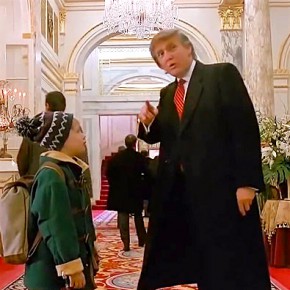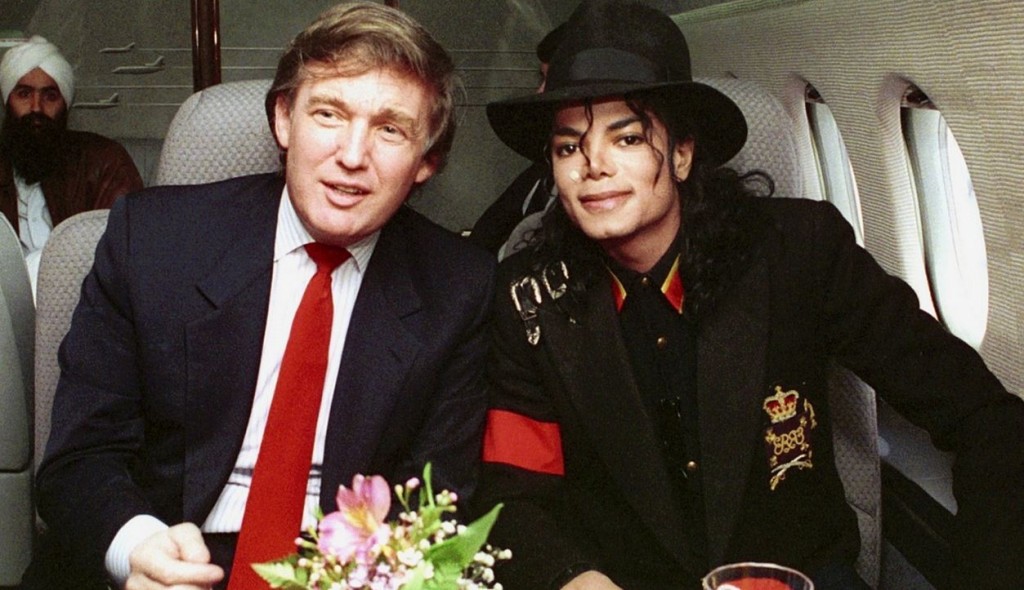
A post-Super Tuesday reflection from Scott Larousse:
It’s likely that history will view Donald Trump in one of two ways: a flash in the pan, or the harbinger of a change in American politics and, to an extent, society. Many of us might hope it’s the former, in part because Trump as a President would lack the experience other candidates might have and would probably be more volatile – that is, there would be a wide range of outcomes if he were President, and many would agree that the odds of an extremely damaging action by him would be greater under him than most other candidates.
 Another reason why I, at least, might hope Trump is a flash in the pan is that I hope the forces driving him, the needs of Americans which Trump, alone among the candidates, speaks to, are ephemeral. Popular media consistently talks about Trump appealing to people’s anger, but the sources of that anger tend to go unexamined. And the Trump phenomenon is, at core, a result of the various impulses which we group together and place under the vague heading of “anger.” His chances at winning a general election turn largely on the scope of this anger, and his historical import, if any, will turn in part on how stable and deep-seated those impulses are.
Another reason why I, at least, might hope Trump is a flash in the pan is that I hope the forces driving him, the needs of Americans which Trump, alone among the candidates, speaks to, are ephemeral. Popular media consistently talks about Trump appealing to people’s anger, but the sources of that anger tend to go unexamined. And the Trump phenomenon is, at core, a result of the various impulses which we group together and place under the vague heading of “anger.” His chances at winning a general election turn largely on the scope of this anger, and his historical import, if any, will turn in part on how stable and deep-seated those impulses are.
Populists always speak to something. The populist candidate of the Left, Bernie Sanders, gives voice to economic alienation, those who feel left behind by the rapid increase of the wealth gap in our country, the increasing concentration of money and power in a very small group of people. Those people deserve a voice, their criticisms of Wall Street, etc. contain at least some truth, and our particular brand of capitalism over the last however-many decades has disserved them. All this is relatively straightforward, traceable in the Occupy protests, the bailouts, the recession, and so on. Sanders, as a phenomenon, is relatively intelligible, and when people write about him, they usually can articulate the reasons.
With Trump, things are different; he seems to have come out of nowhere. The genealogy of his support may be a darker legacy: renewed racial outbursts, school shootings, Gamergate, and other instances of a general anger, mostly particular to white males. But it’s murky, because it seems dark: a Clinton supporter can say to the Sanders supporter, “We understand the frustration, and Hillary has the same concerns, but the only way to get things accomplished is through compromise; you do have to work within the system, after all, and progress can only be made on these issues slowly.” To the Trump supporter, no other Republicans have anything to say but, “Why?” And met with a genuine answer, like “He’s the only person who speaks his mind” (I was recently offered this explanation), they conclude that this generic “anger,” if not outright stupidity, is the reason.[1] Of course, criticism (or law, in our terms) provokes trespass, which is why, when this anger seems to be reactive, you have to ask what it’s reacting against.
 We live in a society which increasingly fetishizes potential, making it big, and obtaining an elite education, if not for ourselves, then for our kids. Tutoring services bring in $10bn a year, and an epidemic of anxiety has swept high schools, colleges, and other professional schools. So compelling is this vision of economic achievement that students regularly graduate some medical schools and law schools with six figures of debt and nary a job in sight, as cultural pressure to achieve rides roughshod over facts and employment statistics. We value the intellect far above the body, and the old virtues of physicality, courage, toughness – qualities which were once paramount – have fled to the increasingly scrutinized world of sport. With almost everyone who has significant power and influence on a national stage working desk jobs, physicality simply doesn’t matter like it used to. Unsurprisingly, men tend to be the more alienated by this shift.
We live in a society which increasingly fetishizes potential, making it big, and obtaining an elite education, if not for ourselves, then for our kids. Tutoring services bring in $10bn a year, and an epidemic of anxiety has swept high schools, colleges, and other professional schools. So compelling is this vision of economic achievement that students regularly graduate some medical schools and law schools with six figures of debt and nary a job in sight, as cultural pressure to achieve rides roughshod over facts and employment statistics. We value the intellect far above the body, and the old virtues of physicality, courage, toughness – qualities which were once paramount – have fled to the increasingly scrutinized world of sport. With almost everyone who has significant power and influence on a national stage working desk jobs, physicality simply doesn’t matter like it used to. Unsurprisingly, men tend to be the more alienated by this shift.
Add to that the fact that our only absolute moral category, at least in the public sphere, is political correctness, which is almost entirely a function of one’s education. Just as the worst of Republicans used to imply (and surely some still do) that poverty was both one’s own fault and, at least partly, a sign of deficient character, so now the use of certain insensitive terms (“she suffers from a handicap”), is a not only a stylistic sin, but potentially a moral one. Or if a woman at an all-girls school feels like cis-males should not be admitted, and so on.
The extreme judgment attached to those sorts of opinions is the most discernible part of this wave of moral fervor, but not the only one: milder regressive convictions, slight misstatements, and so on may not provoke out-and-out condemnation (except on the Internet), but a mere raise of the eyebrows, a cursory correction, or some other sign of mild skepticism, bordering on disapproval. But these are primarily functions of education and class, so the same people who may be underachieving economically are now also, to greater or lesser degrees depending on their background, being condemned morally. In short, people with poor educations are being blamed and even castigated as a result; the one person they see on the television or Internet who says something which they agree with is quickly castigated for his views, and the obligatory rush of apologies for thoughtcrime follows. I would guess that this can be alienating and isolating, to see the public avatar of where you’re coming from being piled-upon in the most relentless manner. A sort of vicarious scourging for the viewer at home.

It may help to give an example: as the national reaction to the Ferguson shooting unfolded, MSNBC’s Joe Scarborough recognized the serious problems our country faces in racial injustice in law enforcement, but voiced his opinion, consistent with a later Department of Justice investigation, that the officer’s conduct in that situation had not been criminal, that he had reason to feel threatened by the victim of his shooting, and so on. In the course of expressing his unpopular views, he claimed that 95% of America thinks the same thing. Later, he commented that:
“They’re afraid to say anything on the air, even though they know it’s BS. People [are] saying one thing when the camera’s on and then saying something completely different when the camera gets turned off, because they’re somehow afraid they’ll be called racist if they tell the truth.”
This is one example of a view that, in certain circles (including MSNBC and probably other major media outlets), is not merely wrongheaded (indeed, no one really contested his version of the facts), but morally deficient, almost evil (or, at least, an extension of a historical evil). I knew people at the time who agreed with his opinions, but would never have voiced such agreement beyond the confines of their car or living-room. In short, there is a strong public moral tide, and these people are on the wrong side of it, their politics or lack of education marking them out as malevolent.
Of course, it’s quite possible that even if Scarborough’s sentiments were factually true, they were better unshared on air. And some things really are hurtful to others or offensive. But people’s need for affirmation, whether in the form of freedom from someone else’s insensitivity, or their freedom from condemnation for saying something, necessarily clashes among groups.

In the same way that college campuses’ liberalization of sex has now given way to a renewed fixation on sexual sins of various kinds (hookups with asymmetric power dynamics, e.g.), the goal of treating different demographics uniformly has produced, as a side-effect, a new fixation on categories such as race, gender, or sexuality. We read too much into this, though, and even poor whites are sometimes viewed as possessing some sort of privilege, on account of their demography, which precludes their being thought of as victims of a new educational order in which they have little part. As victims who are still viewed largely as perpetrators, sufferers viewed as privileged (and undoubtedly there may be a shred of truth there), there may still be room for them in their towns or households, yet they have been denied any place in broad conversations about values and concerns. Worse, they’ve grown up under the expectation they will be strong, but some of the areas in which they may be strong – manual-labor jobs, athletics, or hobbies like hunting – are increasingly the subject of suspicion from the elites who dominate national conversations, or they are just of decreasing relevance.
Trump represents a lot of things, many which, if they end up being important, will be discovered much later on than now. We’re still at an early moment in ascertaining just what this worn appellation of “anger” is struggling to describe. But a few things are clear: first, what Trump does is reveal to isolated people that they are not alone in thinking as they do. What Bernie Sanders is to the economically left-behind, Trump is to those left behind by our equation of good speech with good morals. Second, the spectrum of thought in this country is much broader than what the well-heeled (relatively, I guess) Internet and academic conversations might contain. And third, that not only moderate Republicans, but also progressives, have radically failed to engage certain groups in this country, and perhaps even antagonized them. If Sanders won the Presidency, certainly those of the Right whose policies or tone has been less economically inclusive would be partly to blame; the converse, with regard to education and political speech, might be true of Trump and segments of the Left.
Trump himself comes off as vulgar, as do many of his followers, and indeed it is only the silenced person who raises his voice and raises his arms in wild, lurid, and threatening gestures. It speaks to a failure to engage on both sides. How will we get the most unfiltered, retrograde nominee in decades, when we live in a time which is more polite, more sensitive than any before? One other depressing fact may be that this anger runs deeper than religion: going by their own vocabulary, Evangelicals have supported, this cycle, first a heretic and then a possibly not-that-serious believer. But there are certain Christian ideas which play out here.
“I would not have known what it is to covet if the law had not said, ‘You shall not covet.’ But sin, seizing an opportunity in the commandment, produced in me all kinds of covetousness.” Romans 7:7-8
In short, when something pushes on someone, the someone pushes back. Letting someone know they’re wrong may make them feel the need to vindicate themselves, especially if the reproof is strongly judgmental, if the reprover comes off as self-assured and insensible to dialogue, or if the person being reproved (or as they feel it, condemned and dismissed) feels a little beleaguered already. It may all be a flash in the pan, and we can (hopefully) go back to a more usual politics at some point down the road. But if you spend time charting cultural imperatives, listening for the destructive impact of moralism and judgment, watching how people feel when there are expectations they simply cannot live up to, Trump’s rise seems, worryingly, consistent with a real, and potentially lasting, emergence of new frustrations and new grievances.
[1] Note the smugness, too: Washington Post, New Yorker, sort of Slate.

COMMENTS
7 responses to “Further Thoughts on The Donald”
Leave a Reply













Mockingbird, I love you, and I love your instincts, but I just can’t imagine this conversation sounding exactly the same if there were other victims sitting at the table while we discuss the damage of political correctness. I’d love to be at the table discussing radical grace in a community gathering in Ferguson or Flint, where the undereducated wouldn’t be piled upon — but the actual damage of racism would be too obvious to leave for a different blog post.
^ “like”
Something to consider if/when Mockingbird can get away from the idea that Trump’s supporters are all racists, and Sanders supporters are the Light of the World. Not MBird’s finest moment.
—————————————————————————-
“Voter anger explained—in one chart” [Brookings Institute]. “the Rust Belt geography of the nation’s anger suggests another, perhaps deeper, explanation for the populist rage that has driven Donald Trump and Bernie Sanders victories in primaries from New Hampshire to Michigan.”
According to these data, globalization, offshoring, and automation have since 1980 liquidated nearly 7 million manufacturing jobs in U.S. communities—more than one-third of U.S. manufacturing positions—as manufacturing employment plunged from 18.9 million jobs to 12.2 million. Moreover, as the chart depicts, while the trend is longstanding, it actually accelerated in the 2000s.
As to the labor-market, wage, and social impacts of these developments, they have been brutal—as is well-known. Notwithstanding the heralded consumer benefits of trade and deindustrialization, these trends have also created substantial adjustment costs and distributional consequences in the labor market, with much of the pain visited on blue-collar workers in manufacturing-oriented metro areas. Exacerbating all of this, meanwhile, was the onset of what the economists David Autor, David Dorn, and Gordon Hanson call the “China shock”— the period beginning in 1991 when local factories found their outputs competing directly with Chinese imports. Those wondering about the deepest sources of populist anger in 2016 will find no better guide than the same authors’ painstaking new analysis of the regional and worker impacts of the China shock. Autor, Dorn, and Hanson show that the arrival of cheap Chinese imports demolished manufacturing in scores of communities, produced widespread unemployment, disrupted workers’ careers, and depressed wages for years. Most poignantly, the scholars show that deindustrialization’s losers have experienced difficulty in exiting threatened jobs, a hard time finding and keeping new employment, an inability to relocate, and diminished lifetime earnings.
No wonder they are frustrated. Only recently stabilized, the decline of U.S. manufacturing remains the primal scene of economic dissatisfaction, and the impacts are still being felt.
Hey Bird. You make a good point about the economic piece of it. But I think focusing too much on the money leaves out the faith/values/culture aspect of the divide. The disagreements in worldview between the left and right poles are becoming severe to the point that our integrity as a single people is being strained. I don’t think economics alone are enough to divide a people so sharply. A filthy rich man and a dirt-poor one may nevertheless agree about things that matter to them more deeply than money, faith and moral values in particular. But when those deeper things are no longer shared, you have a major problem which the disparity in wealth will exacerbate.